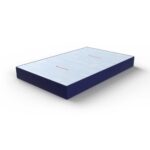Introduction
Receiving calls from unfamiliar numbers like 8325103215 can raise concerns. Whether it’s from telemarketers, scammers, or legitimate organizations, understanding who might be calling and how to handle such situations is crucial. This comprehensive guide will help you navigate these calls with confidence, ensuring your safety and privacy.
What is the 832 Area Code?
The area code 832 is part of the telephone numbering system in the United States. It serves the Houston metropolitan area in Texas. Introduced in 1996, 832 was introduced to accommodate the growing demand for phone numbers in the region.
Understanding the Number 8325103215
- Area Code: 832 is the area code for Houston, Texas.
- Prefix: 510 is a prefix that represents a specific exchange or set of telephone numbers.
- Line Number: The line number 3215 is unique to a particular phone line within the Houston area.
Why Am I Receiving Calls from 832-510-3215?
There are various reasons you might be getting calls from this number, and not all of them are problematic. Let’s break them down:
1. Telemarketing Calls
Telemarketing companies often use local area codes, like 832, to make their calls appear more legitimate. This tactic helps them build trust with potential customers. These calls could be related to product offers, service promotions, or special discounts.
2. Debt Collection Calls
Another common reason for receiving calls from 832-510-3215 is debt collection. If you owe money or have an overdue account, a debt collection agency might be attempting to contact you. They may use this number to reach out and remind you of your financial obligations.
3. Survey and Research Calls
Market research companies may also use numbers like 832-510-3215 to conduct surveys. These calls are typically automated, requesting feedback or input on various subjects, including product preferences or public opinions.
4. Scam Calls
Unfortunately, scam calls are rampant. Criminals often use spoofed numbers (fake caller IDs) to trick people into giving up personal or financial information. If you receive a call from 832-510-3215 and the caller seems suspicious, hang up immediately.
How to Identify if a Call from 8325103215 is Legitimate
Not all calls from this number are harmful. Here’s how you can figure out if the call is legitimate:
Listen Carefully to the Caller’s Introduction
A legitimate caller will introduce themselves and clearly explain the purpose of the call. If the person is vague or refuses to give any information, the call may be suspicious.
Don’t Give Personal Information
If the caller asks for personal details like your Social Security number, credit card information, or bank account numbers, be cautious. Legitimate organizations rarely request this type of sensitive data over the phone.
Check the Number Online
Use reverse phone lookup tools to find out who the number belongs to. Many websites can tell you whether a number is associated with a legitimate business or a known scam operation.
Steps to Take When Receiving a Call from 8325103215
Follow these steps to handle a call from this number safely:
1. Don’t Answer Immediately
If you’re unsure about the number, it’s best to let the call go to voicemail. Scammers rarely leave messages, but legitimate callers often do.
2. Listen to the Voicemail
Listen to the message carefully if one is left. If the message sounds unprofessional, threatening, or confusing, it may be a scam. Legitimate callers will provide clear information about who they are and why they are calling.
3. Research the Number
You can use online tools like TrueCaller or WhitePages to look up the number and identify its origin. Checking reviews or reports from other users can help you determine if this number is associated with telemarketing or scams.
4. Report Suspicious Calls
If the call seems suspicious, report it to your local authorities, the Federal Trade Commission (FTC), or your phone provider. This helps prevent others from falling victim to similar scams.
Signs You Are Dealing with a Scam Call
Scam callers often use common tactics to manipulate you. Look out for the following signs:
1. Unsolicited Offers
If the caller is offering a deal or asking you to act fast (for example, “You’ve won a prize, claim it now!”), be wary. Legitimate businesses don’t make offers like this out of the blue.
2. Pressure Tactics
Scammers often use high-pressure tactics, like threatening legal action or claiming you owe money, to create a sense of urgency. Legitimate callers won’t rush you into making decisions.
3. Request for Payment via Gift Cards or Wire Transfers
A major red flag is when the caller asks you to pay via gift cards, wire transfers, or other non-traditional methods. Scammers often use these payment methods because they are difficult to trace.
Is 8325103215 Dangerous?
While not every call from 8325103215 is dangerous, it’s essential to be cautious. If you receive a call and the person on the other end refuses to provide clear answers or makes you feel uncomfortable, it’s best to disconnect. Always prioritize your privacy and security.
How to Block Calls from 8325103215
If you want to stop receiving calls from 8325103215, blocking the number is a quick and effective solution.
For iPhone:
- Open the “Phone” app.
- Find the recent call from 8325103215.
- Tap the “i” icon next to the number.
- Scroll down and tap “Block this Caller.”
For Android:
- Open the “Phone” app.
- Tap the recent call from 8325103215.
- Tap on the “Details” or “Information” icon.
- Tap “Block Number.”
You can also contact your service provider to request a block if you’re receiving persistent spam calls.
How to Protect Yourself from Future Scam Calls
Follow these preventive measures to safeguard yourself against future scam calls:
1. Register on the National Do Not Call Registry
The Federal Trade Commission (FTC) offers a Do Not Call Registry where you can list your phone number to reduce telemarketing calls. While this won’t stop all calls, it can significantly lower the number of unsolicited sales calls you receive.
2. Use Call-Blocking Apps
Several apps, like Nomorobo, RoboKiller, or Hiya, can help you block scam calls. These apps use databases of known scam numbers to filter out unwanted calls automatically.
3. Report Scam Calls
If you receive a scam call, report it to the FTC or your local consumer protection agency. The more reports they get, the more they can do to track down and shut down scam operations.
How to Trace Calls from 8325103215
If you want to trace the origin of a call, you can use a reverse phone lookup tool. This will provide information about the phone number, including whether it’s from a business, telemarketer, or scammer.
Some popular services include:
- TrueCaller: Provides user reports on numbers and helps identify spam callers.
- WhitePages: Offers detailed information on phone numbers, including location and owner.
- Spokeo: This tool can provide personal information related to phone numbers.
Conclusion
Getting calls from unknown numbers, especially like 832-510-3215, can be alarming. By following the steps outlined in this guide, you can protect yourself from unwanted calls and identify potential scams. Always remember to stay cautious and take action when necessary. If you’re unsure about a call, trust your instincts and don’t hesitate to block the number or report it.
FAQs About Receiving Calls from 8325103215
What should I do if I get a call from 8325103215?
Let the call go to voicemail, listen to the message, and research the number. If it seems suspicious, report it.
How can I tell if a call from 8325103215 is a scam?
Look for unsolicited offers, pressure tactics, or requests for payment through gift cards. If unclear, it may be a scam.
Can I block calls from 8325103215?
Yes, you can block the number on iPhone or Android following the steps in the guide.
How do I stop telemarketing calls?
Register with the National Do Not Call Registry or use call-blocking apps to reduce unwanted calls.
Is it safe to answer unfamiliar calls?
It’s safer to let unfamiliar calls go to voicemail and avoid answering if unsure.
How can I report a scam call?
Report suspicious calls to the FTC, your local consumer protection agency, or your service provider.




